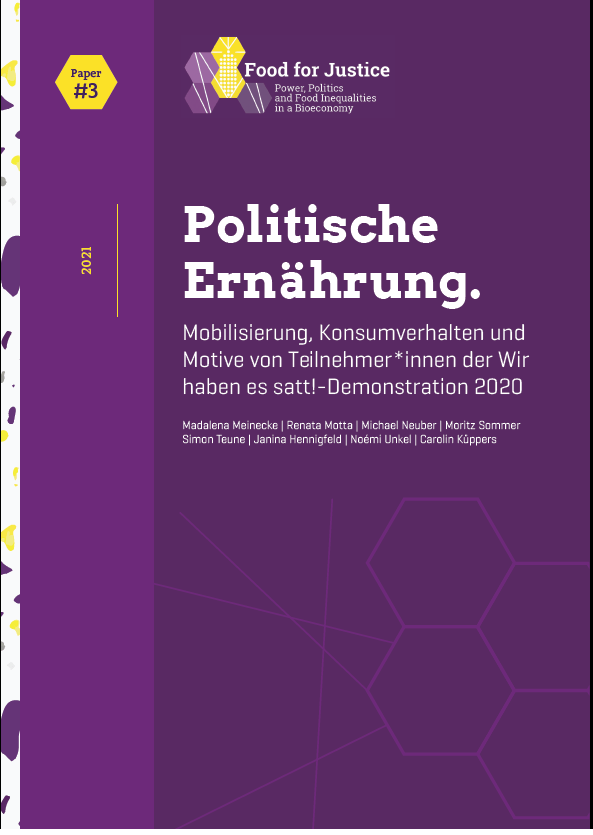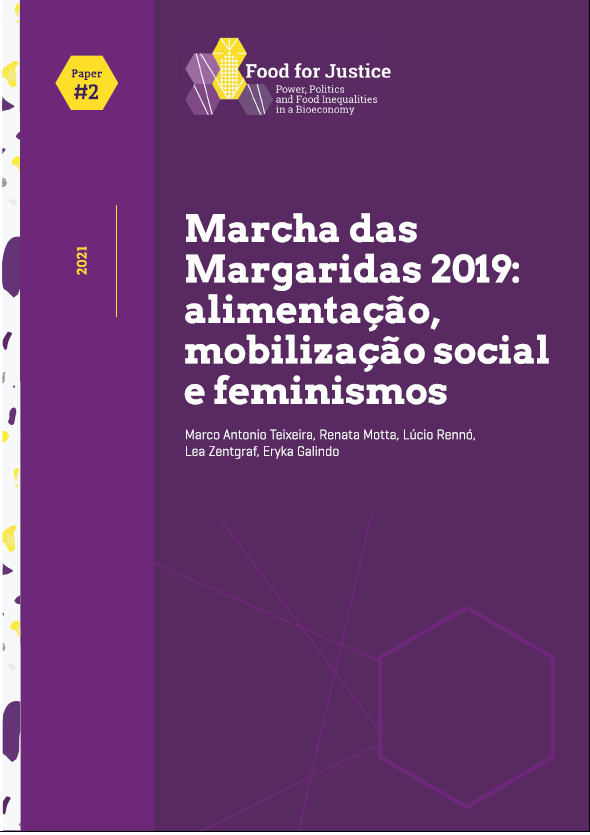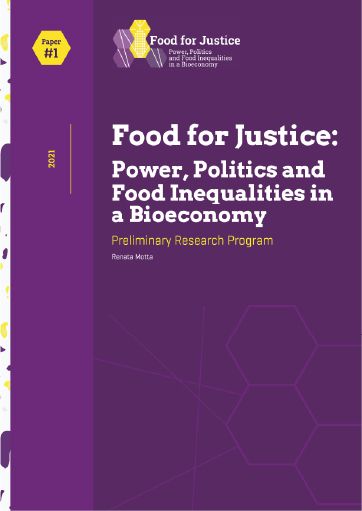Working Paper 3 • 2021
Politische Ernährung. Mobilisierung, Konsumverhalten und Motive von Teilnehmer*innen der Wir haben es satt! Demonstration 2020: The Politics of Food. Mobilization, Consumer behavior and Motives of Participants of the Wir habe es satt! protest 2020
Abstract
The large-scale protest Wir haben es satt! (We‘re fed up!), organized by the Meine Landwirtschaft (My Agriculture) coalition, has been held for ten years to mark the start of the Green Week agricultural fair in Berlin. The coalition advocates for sustainable agriculture and fair food production and supports farmers throughout Germany. On January 18, 2020, researchers from Freie Universität Berlin, in cooperation with the Institute für Protest- und Bewegungsforschung, conducted a comprehensive survey of participants in the Wir haben es satt! protest. The resulting data shed light on who the protesters are, their concerns and political attitudes, and, last but not least, how they support a different kind of agriculture through their own consumption and lifestyle choices. A large proportion of respondents identified themselves as female and classified themselves politically as left of center. The majority of respondents were representative of an older demographic. As with many protests in Germany, respondents represent a specific socio-economic segment of the population: two-thirds reported having a university degree and most reported a medium to high income. Above all, the protestors surveyed reported consistent political engagement. Many stated they were members of political organizations, experienced demonstrators, and familiar with the socio-political issues related to climate and environmental policy. In fact, less than two percent reported Wir Haben es satt! being their first protest. The respondents are mainly consumers. Very few respondents produce food for commercial purposes. This specific social group can be described as food conscious. They make ethical consumer decisions and have a great interest in expressing their own concerns. Here is to note, that it was not possible to survey the tractor convey attached to the protest by foot.
Working Paper 2 • 2021
Marcha das Margaridas 2019: Food, social mobilisation and feminisms
Abstract
This paper presents the data collected in the survey Marcha das Margaridas 2019: food, social mobilization and gender, whose objective was to understand the social composition and the perception of activists on these issues. The survey was conducted on August 13 and 14, 2019 in face-to-face (458) and self-administered form (1657) modalities. The Marcha das Margaridas is one of the case studies of the Food for Justice Research Group, which analyzes social mobilizations that counter injustices in food systems, as well as social and political innovations that confront multiple and intersectional inequalities such as class, gender, race, ethnicity and nationality, in the construction of just and ecological food systems.
Working Paper 1 • 2021
Food for Justice: Power, Politics, and Food Inequalities in a Bioeconomy Preliminary Research Program
Abstract
The Junior Research Group Food for Justice examines normative questions of inequalities and justice, rights and democracy that arise in disputes surrounding the question “how are we going to feed the world?”. Increasingly, citizens perceive the global food system as part of the historical causes of the ecological crisis and the persisting hunger in the world. Although reasons for these causal links are long known (the use of food for profit, the gap between production and consumption, conflicts over land and water, exploitative labour relations, the energy matrix and waste generation, among others), research on food security and the bioeconomy tend to rely on the same, searching for technological fixes to a profit-oriented model exploiting living matter. What is needed to deepen the debate is more knowledge about which food system citizens desire, which solutions are already there to address the social concerns and how to redirect public policies towards a fair, democratic and sustainable food system. Combining theoretical perspectives on global entangled inequalities with social movement research, Food for Justice will look at challenges and solutions both in Europe (with a focus on Germany) and in Latin America (focusing on Brazil). The research consists of case studies of social mobilization targeting injustices in the food system and case studies of social technologies and political innovations, such as agroecology and alternative food networks. Food for Justice aims at providing a theoretical and conceptual framework, grounded on empirical research, to analyse social and political experimentations that address inequalities based on class, gender, race, ethnicity, rurality, citizenship, thus building fair, democratic and ecological food relations.







